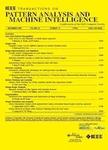版权所有:内蒙古大学图书馆 技术提供:维普资讯• 智图
内蒙古自治区呼和浩特市赛罕区大学西街235号 邮编: 010021

作者机构:Ontario Tech Univ Fac Sci Oshawa ON L1G 0C5 Canada
出 版 物:《IEEE TRANSACTIONS ON PATTERN ANALYSIS AND MACHINE INTELLIGENCE》 (IEEE Trans Pattern Anal Mach Intell)
年 卷 期:2022年第44卷第2期
页 面:905-923页
核心收录:
学科分类:0808[工学-电气工程] 08[工学] 0812[工学-计算机科学与技术(可授工学、理学学位)]
基 金:Natural Sciences and Engineering Research Council of Canada (NSERC)
主 题:Streaming media Computer vision Algebra Pipelines Approximation algorithms Optimization Buildings Stream algebra online vision algorithms stream processing large scale computer vision systems parameter tuning performance optimization
摘 要:There is a large growth in hardware and software systems capable of producing vast amounts of image and video data. These systems are rich sources of continuous image and video streams. This motivates researchers to build scalable computer vision systems that utilize data-streaming concepts for processing of visual data streams. However, several challenges exist in building large-scale computer vision systems. For example, computer vision algorithms have different accuracy and speed profiles depending on the content, type, and speed of incoming data. Also, it is not clear how to adaptively tune these algorithms in large-scale systems. These challenges exist because we lack formal frameworks for building and optimizing large-scale visual processing. This paper presents formal methods and algorithms that aim to overcome these challenges and improve building and optimizing large-scale computer vision systems. We describe a formal algebra framework for the mathematical description of computer vision pipelines for processing image and video streams. The algebra naturally describes feedback control and provides a formal and abstract method for optimizing computer vision pipelines. We then show that a general optimizer can be used with the feedback-control mechanisms of our stream algebra to provide a common online parameter optimization method for computer vision pipelines.